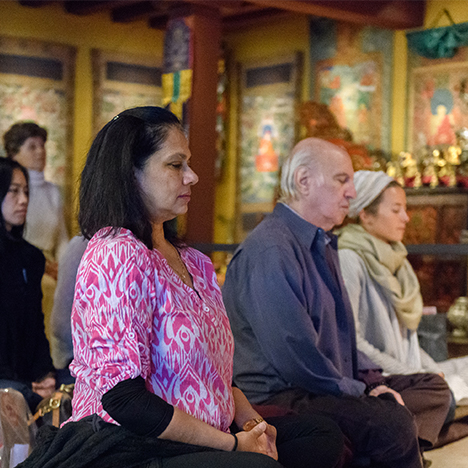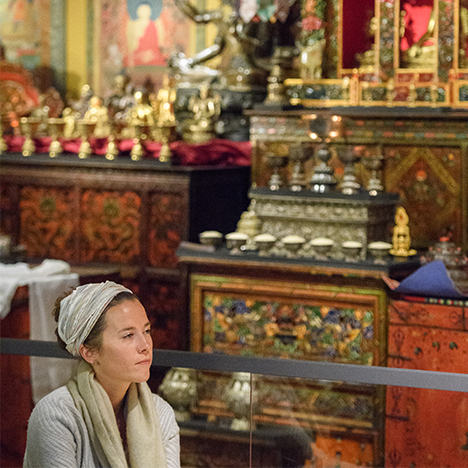


Forgiveness, like gratitude, is a practice that can be cultivated one moment at a time. Forgiveness is the opposite of indulgence, grounding us, reconnecting us to humility and humanity. In forgiving ourselves, we remember that we are human, subject to causes and conditions. We are not demons. We are not angels. Forgiving ourselves for all we have done or not done due to our pain and fear and delusion is a way for us to soften and open our hearts and minds to reality again. It is also a way to prepare to forgive others. But we can stay with ourselves as long as we like.

Photograph by Filip Wolak
It is wise to practice in small moments. When we are quiet, at the end of meditation or in nature or otherwise relaxed, we can say “forgiven” silently, like a mantra or prayer. For a moment or two as we practice this, we may feel ourselves emerge from the cage of our thinking into a warmer, more expansive awareness, an awareness that is connected to life in the present moment. Notice that forgiveness practice is really a gesture of recognizing and accepting our own humanity. It is a gesture of humility, literally returning to the earth.

Photograph by Filip Wolak
Not surprisingly, the word “forgive” comes from a word that means “to give.” As Charles Dickens tells us, no one ever paid a debt while locked away in debtors’ prison. Why not be free from the prison of the kind of thinking that is really judgment, often obsessive and mean and divorced from reality? To forgive a debt is giving solvency to another—absolving them, pulling them out of debtors’ prison and back into the light of the living.
Forgiveness is also fore-given, given in advance. Just for a moment, experiment with how it feels to be granted forgiveness in advance. In other words, you don’t have to apologize for being you. Every part of you—angry you, sad you, slightly disorganized you—is lovable and welcome here on earth.

Photograph by Filip Wolak
Like many men of his generation, my father was a veteran of World War II. At the conclusion of his funeral, an honor guard fired a 21-gun salute. This ritual came from the custom of ships firing off all their guns to show that they came in peace. With no time to reload before they were in range of the shore, the ship was voluntarily defenseless. To ask for and offer forgiveness is to put down arms, daring to show ourselves as we are without defenses.

Tracy Cochran has taught meditation and spiritual practice for many years. She is a speaker and author whose most recent book, Presence: The Art of Being At Home in Yourself, was published by Shambhala Publications in 2024. Tracy is the founder and leading teacher of the Hudson River Sangha and has taught mindfulness and mindful writing at New York Insight, the Rubin Museum of Himalayan Art, and many other venues. In addition to serving as the editorial director of the acclaimed spiritual quarterly Parabola, her writings have appeared in The New York Times, New York Magazine, Psychology Today, The Best Spiritual Writing series, Parabola, and many other publications and anthologies. For more about Tracy, please visit tracycochran.org and parabola.org.
Get the latest news and stories from the Rubin, plus occasional information on how to support our work.